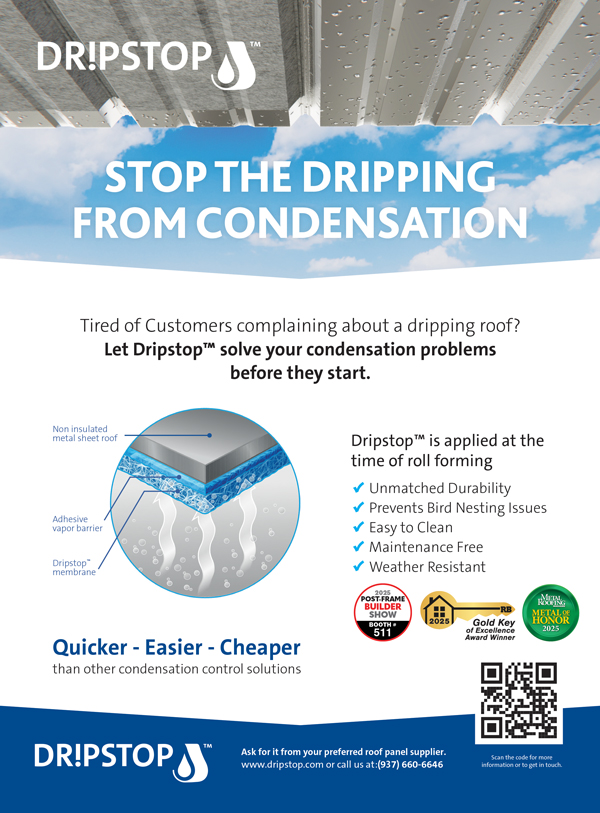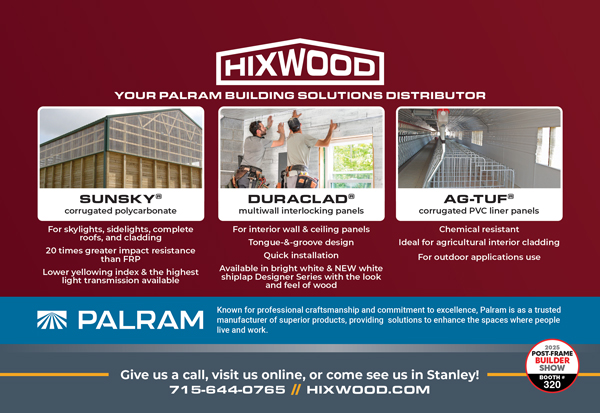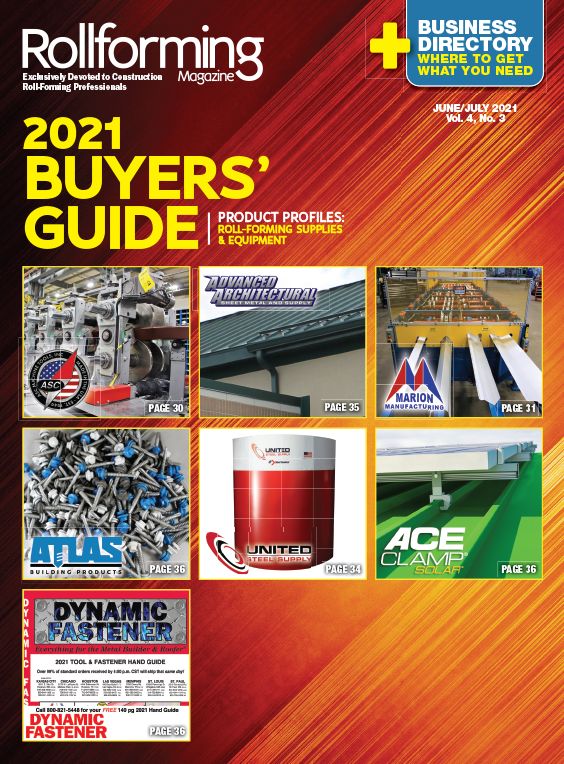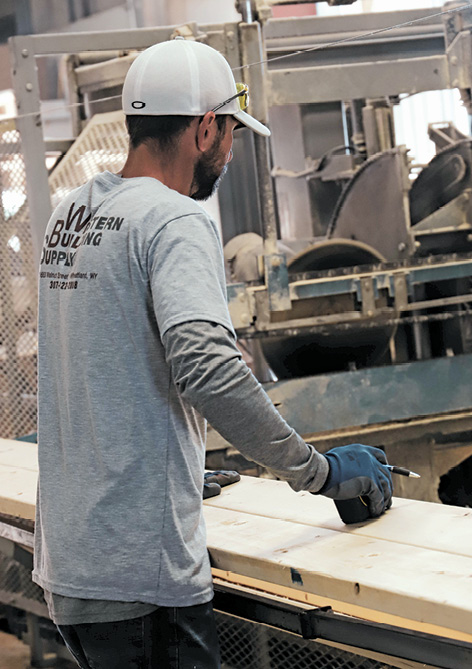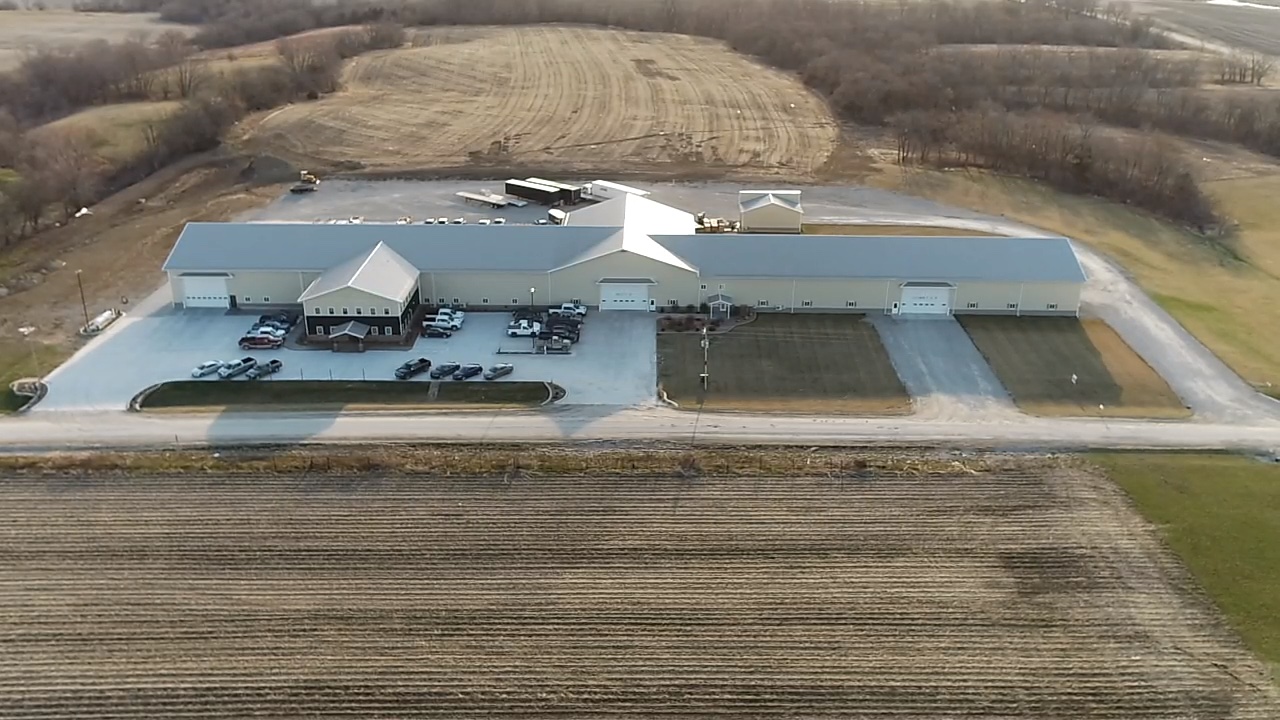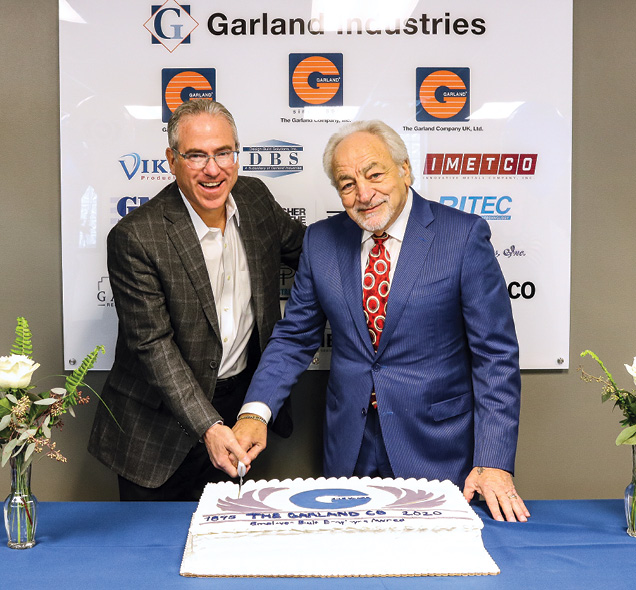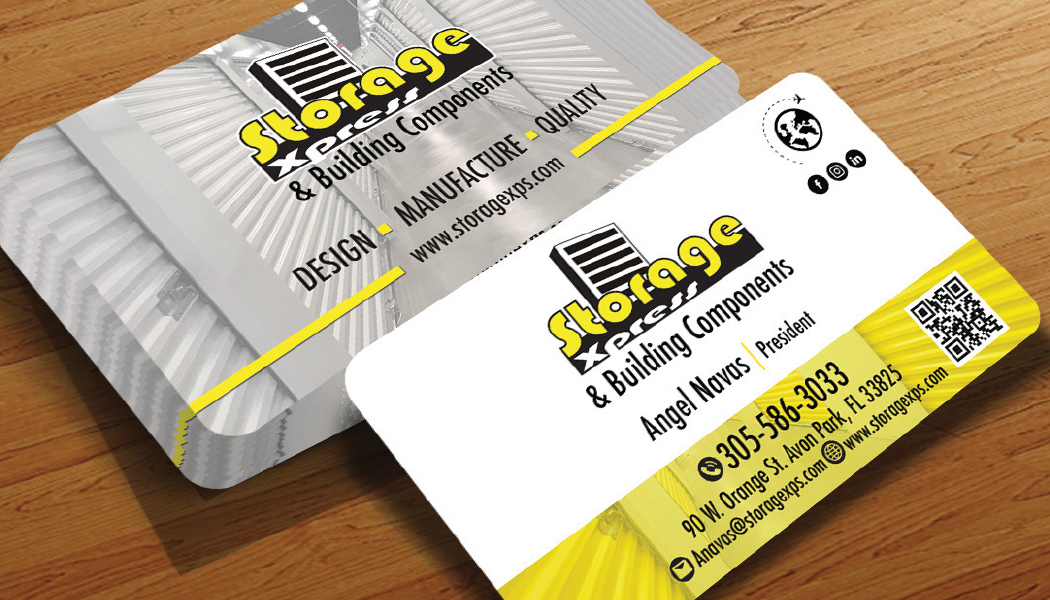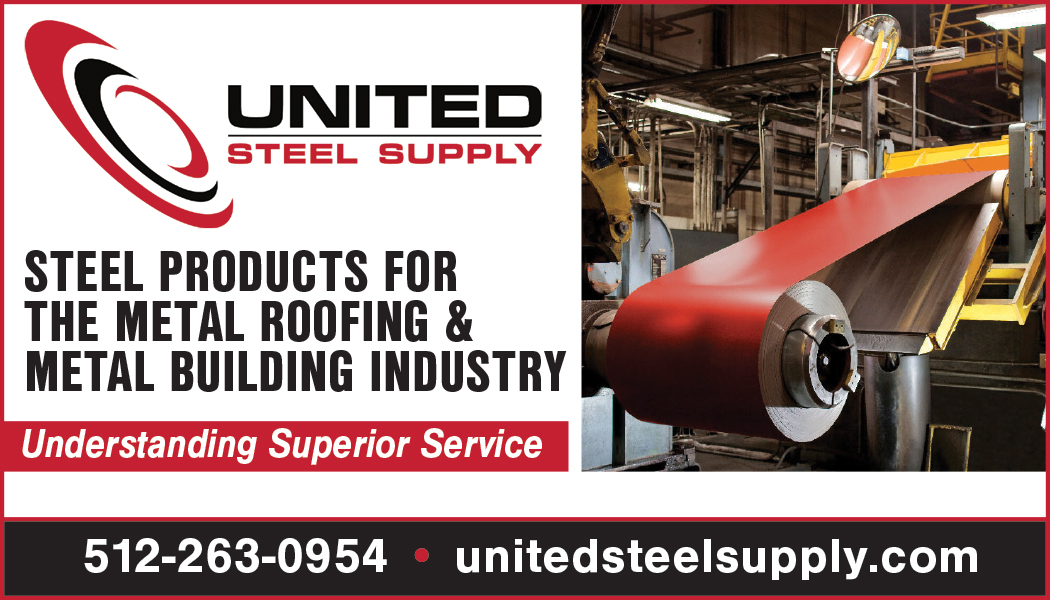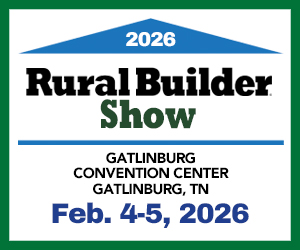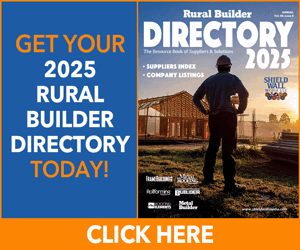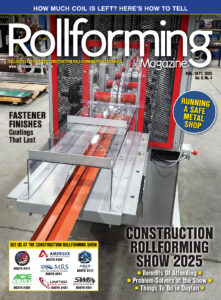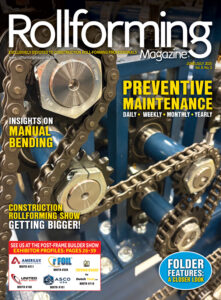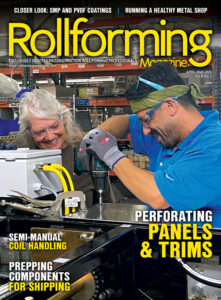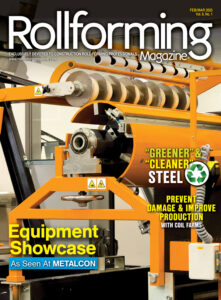■ By Sharon Thatcher
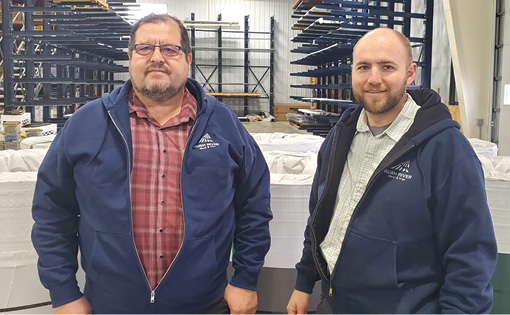
What happens when you realize your current business isn’t providing you with the income and satisfaction you need? How do you pivot into an entirely new direction? That was the dilemma facing the owners of Rush River Steel in Henderson, Minnesota, back in 2011. The answer for them was a daring plunge into the roll-forming market that would take lots of research—and even more faith.
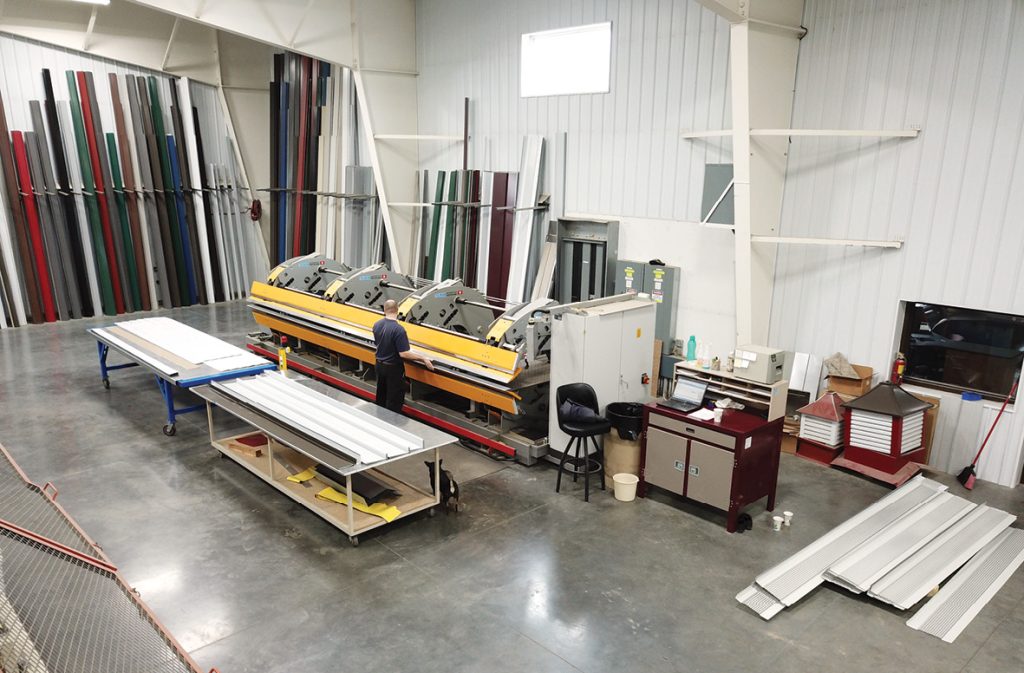
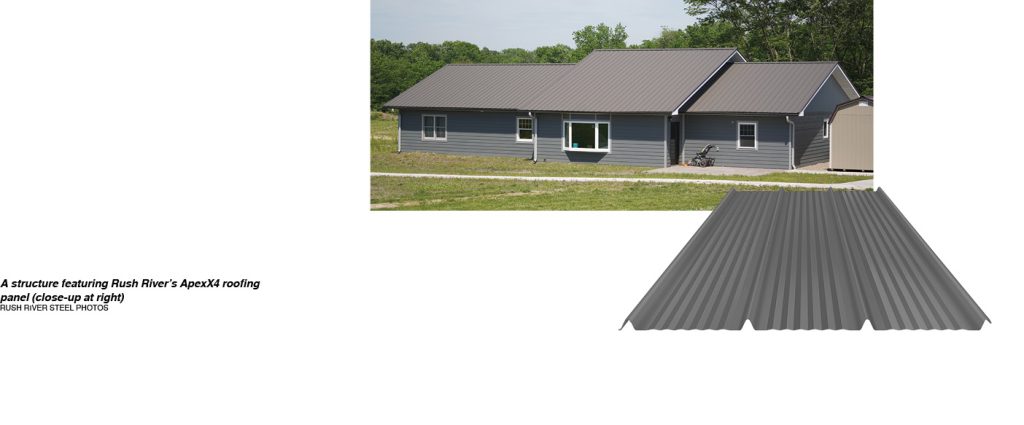
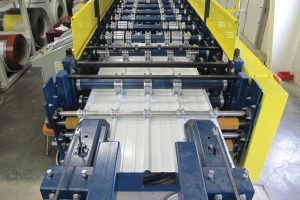
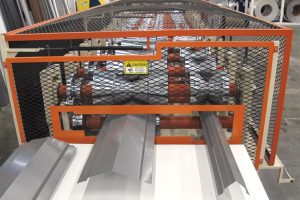
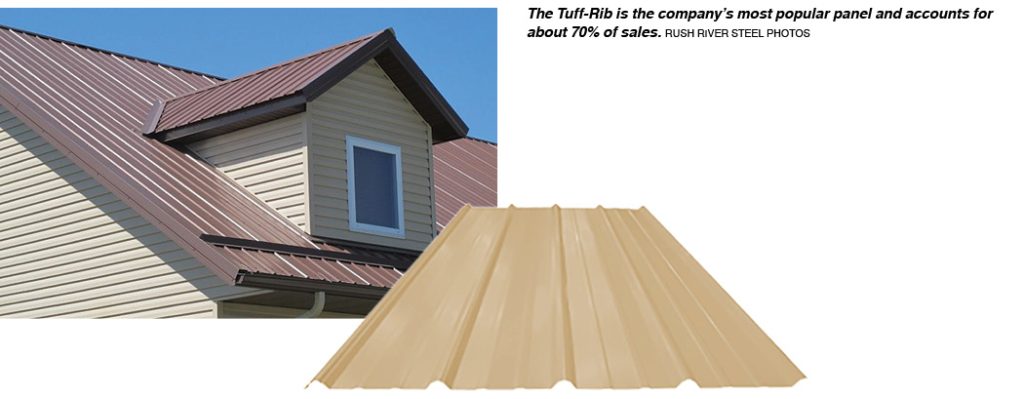
General Manager Jacob Wollman explained the company’s transformation:
“In 2001, we started a metal fab business doing custom laser-cut parts, forming, and fabrication. This business had some growing potential, but we were constantly plagued with our best customers getting their own laser cutters and moving their business in-house. “We realized we needed to not only cut parts, but have an end product to sell that we manufacture in-house. So we pursued a number of different projects through the years, mainly truck accessories and golf cart accessories, and also did custom cutting and fabricating. In the 10 years we were doing custom fab work, we never seemed to get ahead.”
Survival and growth were critical because the business wasn’t just sustaining the employees and their families, but an entire community. Rush River is a blended church- and family-owned business. Along with a hog operation (Altona Isowean) and heavy machinery remanufacturing and sales, Rush River Steel supports the Altona Hutterian Brethren. It’s a Christian community of 23 families living together and sharing the proceeds with everybody equally, “sharing one purse,” as Wollman described it. While church-connected, their businesses are subject to all of the same laws, ordinances, and taxes as any non church-owned business in the U.S.
“All of our businesses are run and operated almost entirely by members of the community,” Wollman said, adding, “The whole community is supported by these three businesses.”
While living modest lives within their homes, Hutterites are sustained by progressively operated businesses, and their existing laser cutting business just wasn’t “cutting it.”
“A lot of Hutterite colonies had jumped into the steel-cutting arena 25 years ago and some were struggling for years to find a niche they could stay and expand in,” Wollman explained. “Many are very successful, but we never found one we were excited about. Truck accessories was an expanding market, but we were reluctant to press deeper into this market because of the difficulty to work with the end user. It was extremely custom work requiring long hours of polishing/designing—for what? Customers weren’t willing to pay for the quality they received,” Wollman said.
It was Wollman’s father who lobbied the church to consider roll forming.
“My late father (the overall manager at the time) had this business in mind for years. We were inspired by friends and family in the business that had been up and going for years, and some had encouraged us to make the investment. We were far enough away not to be competitors. The church gave its blessings to the plan and we went ahead with it,” Wollman said.
Go Big or Go Home
The elder Wollman and his team spent about a year researching the business further by attending trade shows and visiting roll-former manufacturers around the country. By heeding advice, they decided to go with all-new equipment.
“We decided to go in with a big bang: we’re not going to start with the cheapest equipment or the budget equipment, we’re going to go in and buy good quality machines,” Wollman continued. He explained the reasons: “We talked to a lot of people, references, on what machines to buy. Friends in the business told us, in the beginning, get the best machines. Quality equipment will provide better quality, more consistent products, and it’s easier to buy it up front than try to resell your mediocre equipment later.”
Rush River’s next step was to sell their laser cutting business and close up shop before starting to buy equipment costing on the high end of six figures.
“So here the equipment arrived and we still didn’t have one customer,” Wollman said, “but we did know a handful of contractors in the area who gave us a lot of encouragement.”
True to their word, the contractors started ordering as soon as the machines were on line. “As soon as we were ready, we had a few orders, and they came to us—we didn’t go to them, it was just word of mouth,” Wollman related.
Up until the opening of Rush River, local contractors had to travel at least 3½ hours one way to get their factory-direct metal panels and trim. Having someone local who could provide quality products and service was an important time-saver. Business quickly took off, serving builders and DIYers in a 165-mile range of Henderson.
Of course, ultimate success took years. “It’s not easy to build a business from ground zero, but contractors were at our door from day one and that has only expanded,” Wollman said, adding: “We kind of had to grow into our shoes the first four years, but after we grew into them we were off and running.”
They initially started with 12,000 square feet of shop space. “Three years in … we outgrew the existing workspace exponentially. In 2014, we started building another shop—27,000 square feet—the one we currently use,” said Wollman. They are at capacity there and are considering another addition in a few years. It is not filled as much with inventory as it is with machines. Beginning business with just one roll former, they now have two MRS Titan II roll formers, plus a 21′ Thalmann double folder, a Bradbury trim roll former, four standalone pneumatic shears for each panel profile, a Forstner slitter for trim, a trim wrapper, plus Linde and Combilift forklifts, a Peterbilt semi with Moffet piggyback forklift, and four Chevy pickups with trailers.
Unfortunately, Wollman’s father was not able to see the company he helped to start grow through the years, but son Jacob has been there in his place. He was looking for a change after serving 11 years as a schoolteacher in the community’s school and was voted to take the management role of Rush River when the business opened.
Changing Coil Suppliers
A year into the business, Rush River Steel decided to change coil suppliers, choosing to work with Hixwood Metals based in Wisconsin, a partnership that continues today.
“Since we got to know Hixwood Metals, we discovered how much we have in common not only in our business but also our values and beliefs,” Wollman said, a reference to Hixwood’s Mennonite connection. “We currently buy all of our coil through Hixwood in full truckloads, mostly coming out of Indiana. Paul and Harvey Zimmerman have worked hard for our business and are continuing to have the best service and competitive prices, and we highly value our friendship with their whole team. You could not find nicer people around and we look forward to many more years of friendship and business.”
Rush River also occasionally purchases doors, windows, and vinyl slat panels from Hixwood.
Inside Their Operation
Rush River Steel started by offering two panel profiles, but now manufactures five: Tuff-Rib, ApexX4, Summit, PBR Panel, and Reverse PBR.
“Tuff-Rib Profile remains our premiere panel,” Wollman said. “It’s about 70% of total panel sales. This will probably change though. Last year, June 2019, we installed our second MRS Titan II machine that is doing the ApexX4 and Summit panels. We are continuing to expand in these two panels and have high hopes for them. They are tailored more for the residential market, the Summit is also good for round roof barns.”
Steve Waldner, Sales Manager, sees the residential segment—primarily residential reroofing and post-frame garages and shops—as a booming industry for steel roofs. “I believe homeowners are growing increasingly frustrated with the asphalt roofs and are warming up to putting steel on their roofs,” he said. “We know the advantages of a steel roof and we are working hard to get that awareness out to our local municipalities by teaching people that come through our door or call.”
In addition to their five panel profiles, Rush River manufactures trim in-house using the 21′ Thalmann double folder.
“We roll form five of our most popular trims using a Bradbury trim roll former,” according to Wollman. “We stock 30 different colors of fasteners in a dozen different styles and lengths. We stock a bunch of sliding door hardware and aluminum soffit. “I tell people, we got you covered on the outside,” he continued. “We only sell the steel and accessory package for a building exterior and liner panel if needed. We are dealers for overhead doors, walk doors, and windows as well, but when it comes to wood, we send customers to their local lumberyard. We only employ eight people; we don’t have the man power to be a lumberyard and a steel roll former as well. A lot of people tell us we should offer the whole building package, but the lack of man power, space to store the lumber, and the added investment makes us reluctant to offer lumber.” He added: “We are not a one-stop shop box store, but a regional roll-forming company that supplies quality products and service at fair prices. Perhaps in the future we can look at lumber, but right now it’s not on the near horizon.”
Trim sales accounts for about 30% of total sales, but Wollman noted panels are always the bulk money makers. “While you have an opportunity to make more margins on trim, it always reflects the smaller part of the order, because you usually need a lot less trim than steel per steel-order volume,” he said. “We make thousands of different profiles of trim; this is the beauty of a local regional roll former. We communicate directly with the people that are installing the product. Most contractors have preferences on what they want and every job includes custom trim. Don’t get me wrong, we have our standard trims, but if a customer wants it a little different, we will make it to their specification.”
Pricing Challenges
Located between Minneapolis and Mankato, Wollman said the business has not been swayed into working as wholesalers despite encouragement to do so. “Right off the bat we had a tough time selling wholesale. The [lumberyards] told us, we want to make a certain cut, so you need to be at this price before we start a conversation. In addition, we had to agree to forfeit all business with contractor and retail sales immediately. We could not afford to sell exclusively to wholesale, as contractors were the bulk of our customers, so we respectfully declined. My opinion is you have to become servants to wholesale because they call the shots. In this business, you cannot sell both wholesale (lumberyards) and contractors because you are competing with lumberyards,” he said. “We offer more competitive prices to all wholesalers but not as competitive as they require. We would love to sell to them, but our personal experience has been that the market is too saturated and aggressive for them to work with us. This is OK with us, because there is lots of work around for everyone.” Rush River does offer discounts to its regular customers. “Our biggest customers get wholesale. We also have our regular contractor price, and then we have retail,” he said.
Rush River operates on the principle, however, that quality should never be sacrificed for price and there is no need to focus on outpricing your competitors.
“A lot of people don’t realize that it’s important to stay consistent with our competitors’ prices. We are in for the long haul, and our policy isn’t to price gouge our competitors. As fellow roll formers, it’s in all of our best interest to protect our industry with excellent products at fair prices and provide good service. It’s everyone’s responsibility to uphold this for this industry. We don’t always have the cheapest prices, but we try hard to sell fair and provide excellent service and turnaround. This is what gets customers to come back,” he explained. While contractors may purchase more over the long haul, Wollman doesn’t discount the importance of the DIYers, who make up about 20% of sales. “While some might do just a house, they have friends that need one, too,” he noted.
When asked for reasons behind the business’ success, Wollman said, “Success is very subjective. We feel good about where we are, looking back. … We work hard to have a good reputation with our customers, 95% of our customers come back to us because we treat them the way we want to be treated; Golden Rule. If a customer isn’t happy, we will stretch ourselves to make it right.”
The Business of Roll Forming
Rollforming Magazine visited the Rush River Steel shop in Henderson, Minnesota, in mid-May for a tour. Jacob Wollman shared some additional observations about the business of roll forming.
A Roll Former’s Life
“Our community has a saying that livestock is a ‘lebenigs ample,’ a job that’s alive.” He explained: “When you go down to the hog barn, where you have livestock, it’s a job that’s alive, you cannot skip it, it’s constantly calling for you. You can’t just put down your work and leave.”
The roll-forming business is similar, he noted, “with phone calls coming in, customers at your door, constantly advertising, it’s definitely a responsibility that you’ve got to feed, otherwise it will die. You gotta be here on the phones, you have to get these orders out, your customers are waiting for you. Roll forming has been a great, clean business for us, but like everything, it requires long hours and a lot of hard work.”
Advice on Growing a Business
“Buy fair, sell fair. Pay your bills. Use or invest. Repeat. Everyone’s happy!”
On Shop Life
In the shop, the metal fabrication business is often dirty work; by contrast, roll forming is very clean.
“If you visit our shop, you will immediately see the clean environment in our work area, and pleasant workplace. This is due not only to a responsible and caring team, but roll forming is a clean environment in comparison to a metal fab shop, where you have grinders, welders, laser cutters, and other things going on.”
On Maintenance
“Roll formers usually don’t break down. They’re really not very high maintenance if you know what you’re doing. If you make stupid mistakes, (and they usually end up being stupid ones), yeah, you can break machines, you can crash dies [four layers of steel feeding through the machine at one time, damaging the chrome finish].” Wollman encouraged business owners to utilize their machine manufacturer’s technical advisors to the fullest. “They encourage us that there’s no stupid question, just call. Cameron Wollman is our roll-former technician and he’s on the phone a lot with them. He has no problems calling, he’s become good friends with them.” RF
For more information visit www.rushriversteel.com
Originally published as “A Journey of FAITH” Summer 2020 issue of Rollforming Magazine.


